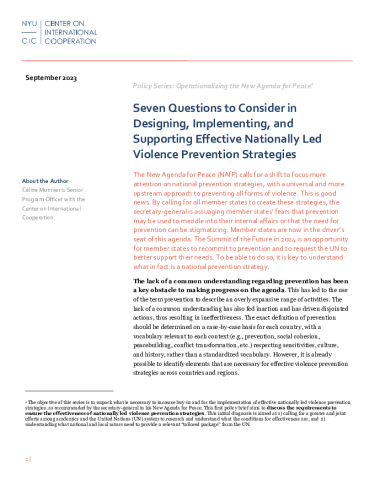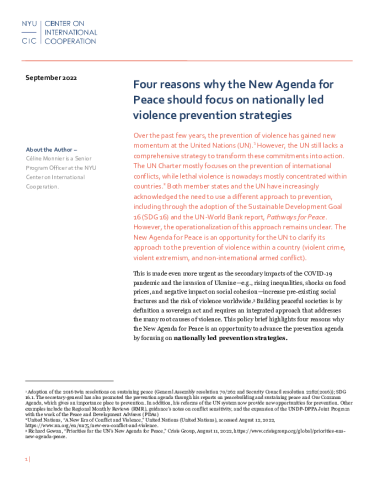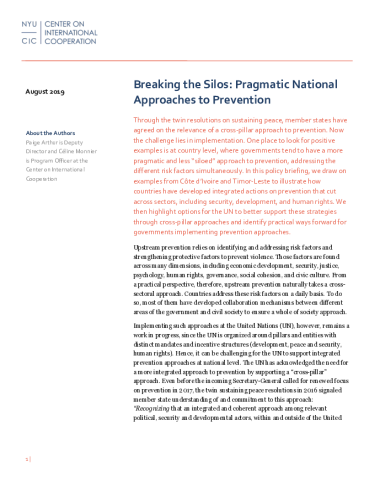The New Agenda for Peace (NAfP) calls for a shift to focus more attention on national prevention strategies, with a universal and more upstream approach to preventing all forms of violence.
This is good news. By calling for all member states to create these strategies, the secretary-general is assuaging member states’ fears that prevention may be used to meddle into their internal affairs or that the need for prevention can be stigmatizing. Member states are now in the driver’s seat of this agenda.
The upcoming Summit of the Future is an opportunity to establish a coherent vision for the role and the relevance of the UN in prevention—aligning approaches across different parts of the UN system—and to provide tailored-made packages and expertise for “member states seeking to establish or strengthen national infrastructures for peace,” as promised in the New Agenda for Peace.
As the first in a new series of policy briefs on “Operationalizing the New Agenda for Peace,” this piece is a conversation starter on the conditions to consider in designing, implementing, and supporting effective nationally led violence prevention strategies and it calls on member states to lead on the development of an evidence-based framework for nationally led prevention strategies, and for experts, practitioners, and UN staff to feed into this discussion based on research and past experiences.
This brief is based on research on violence and on violence prevention strategies—particularly crime prevention, prevention of violent extremism, and infrastructures for peace—and interviews of experts and practitioners.
Acknowledgement of the necessary conditions for effective prevention by the General Assembly can help the UN better align its policies, practices, and programs to support national prevention efforts




